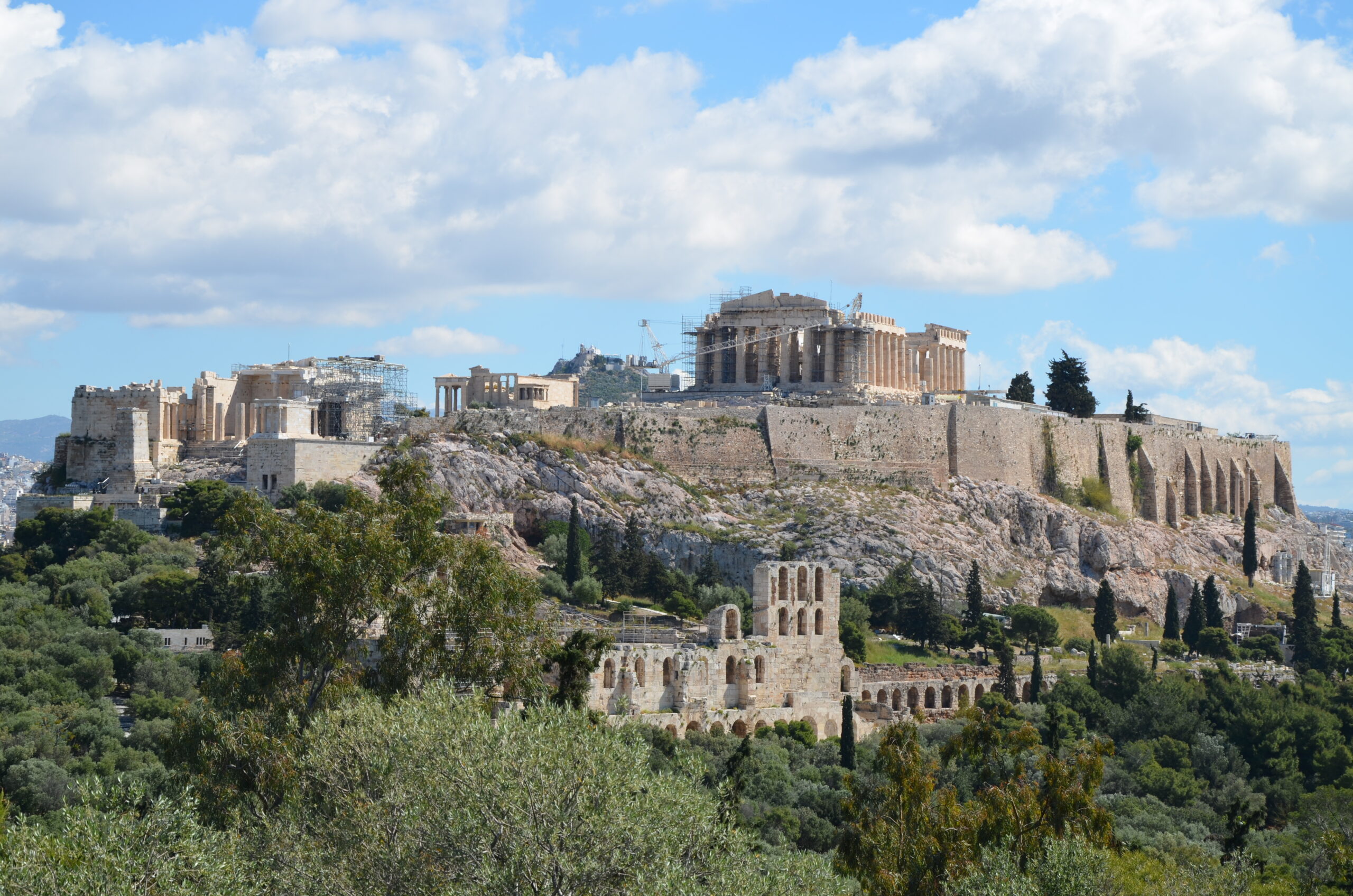
‘It is a truth universally acknowledged, that every single man or woman in possession of a good fortune or no fortune at all, must at some point be in want of visiting Greece…’
The lure is eternal, as is the sun, the sea, the good food and the wine. In the past decade it has been more important than ever to focus on the positive and keep our eyes towards better days in the near future.
Sadly, the positive near future that we thought would follow the initial shock of the economic downfall, was plagued by nearly all possible disasters one can think of, from natural disasters to social upheavals, to the highest unemployment rate in Europe and the devastating pressure of a global pandemic. And now, we have the terrifying global uncertainty of witnessing the devastating war in Ukraine.
At the current state of the world, it is difficult to get one’s self motivated to write anything too positive or upbeat. But what we might have learned over the past couple of years, is that we can live with bad news day in and day out, and adapt. We went from counting the daily Covid-19 infections to counting airstrikes and tanks seemingly overnight. A mysterious disease followed by all these accounts of unnecessary evil all happening on a planet that seems to be on its last breath, might just be what we all needed to shed our old skins and re-adapt.
Greek life is very different today than it was a decade ago, going through changes both good and bad. While the tourist sector is primed to make a full recovery this year, it remains to be seen if this will be enough to carry the country through. It is a fact that tourism income can lead to economic growth – especially in a country where tourism and agriculture wonderfully blend together and offer unparalleled agritouristic experiences. Even so, Greek agriculture now faces a manpower problem. The age of the average farmer is close to 50 and it is very challenging to recruit new blood at a time when larger cities and the life they promise hold a greater appeal. The pandemic changed this for the better but only to some extent and it’s not clear how long those changes will last.
The two first years of the pandemic saw the starkest drop in yearly visitors since World War II. It was detrimental for the islands, the smaller ones in particular, who eagerly await for the summer to generate enough income to last them for the rest of the year. The smaller islands of the Aegean are the ones which feel the greatest strain and who are not as privy to investment and help as mainland Greece and a handful of heavily frequented island destinations.
The Attica region in Athens saw over 40 hotels pop up in 2021 alone with another seven set to open this year in central Athens. These are providing fresh opportunities for local contemporary artists, by offering up the hotel walls for murals, exhibitions and installations. They are destined to become hubs of the local art scene. During the pandemic many of the galleries turned their eyes towards to the intentional art scene, hoping to reach the international audience themselves rather them waiting for them to visit locally. But now, things seem to have take a home-bound turn. A lot of effort has gone into bringing the contemporary and emerging Greek art scene to the forefront. Athens is an old city, with world-famous buildings and ruins, and simultaneously a cradle of incredibly talented new artists. They need to co-exist while not overshadowing each other. This is not the easiest task.
At the same time, the startup scene has flourished compared to previous years. All start ups require an entrepreneurial spirit, and Greece offers that in abundance. Even during the height of the economic crisis and the skyrocketing unemployment rate, Greece had the largest number of self employed people in Europe. This being said, only 36 per cent of Greek startups appear to be receiving international funding, mostly below €50,000. This remains problematic, since it means many young businesses miss the opportunity to expand. The average number of new hires in Greece remains five, which is low compared to other countries. It is expected that over the next years the Greek startup ecosystem will be injected with up to €400 million, but for that to happen the focus needs to be in identifying promising young talent and well oiling the underdeveloped collaborative networks. This will also help attract international recruits and employees.
One can draw up a very long list as to why someone should visit Greece, but people should also think of moving there. You can be very successful, and still live a slower-paced life. You can afford yourself certain everyday luxuries at a relatively affordable price. You can rent a flat with a magnificent view for a fraction of what it would cost in London or Paris. Lastly, and most importantly: you can live out the rest of your days, in the satisfying knowledge that you will never have to settle for average food or a mediocre cup of coffee. In Greece, we know no such thing.

Angelina Giovani is the co-founder of Flynn Giovani Art Provenance Research. Go to flynngiovani.com.